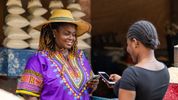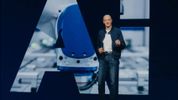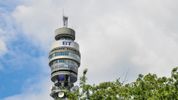Mind you it is not just executive travellers but leisure ones as well. I remember at Hilton Hotels using insights from the data we collected but it was always only the spend at Hilton. We had to commission research to build out a bigger picture.
Today, in return for value offered by the hospitality industry, travellers may engage via smartphones & tablets in "self-service" booking and reviews of stays. The location data from such devices will yield a wealth of actionable insights (permission-based of course) but how much better when joined to all the other data.
Where they came from, where they go to next, how long they said and what they spend and did.
Most enterprises have just touched the surface of this location data- many do no more than visualise it.
Picture the value of joining with multiple data sources including photo & video data.Carto is an interesting specialist in location datathat does far more and can embed the insights to make & execute better decisions into enterprise applications.
Worth a look, especially if you then add in the potential of the IoT for internal & external data sources
We already know that your average executive traveller is connected, but what about everything the road warrior comes into contact with, from the hire car to the hotel room fridge? This is where the ‘Internet of Things’ comes in. It is a big disruptive trend that is only starting to appear on people’s horizons. This uses wireless technology in products not usually associated with internet connectivity to connect them and manage what they do. There could be 50 billion connected devices by 2020, according to technology giant Cisco. This could allow smart devices, systems, processes and business travellers to be connected in new ways. “Travel managers, especially those who run larger multi-national programmes, must continue to be open to pockets of innovation,” says BCD’s Kriedt.
https://buyingbusinesstravel.com/feature/1226093-disruptive-technology-travel
 unknownx500
unknownx500





